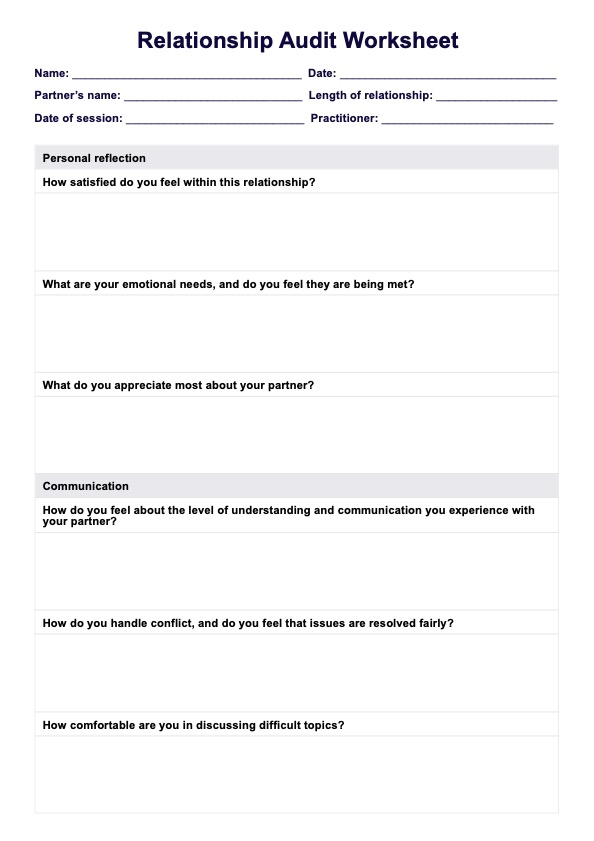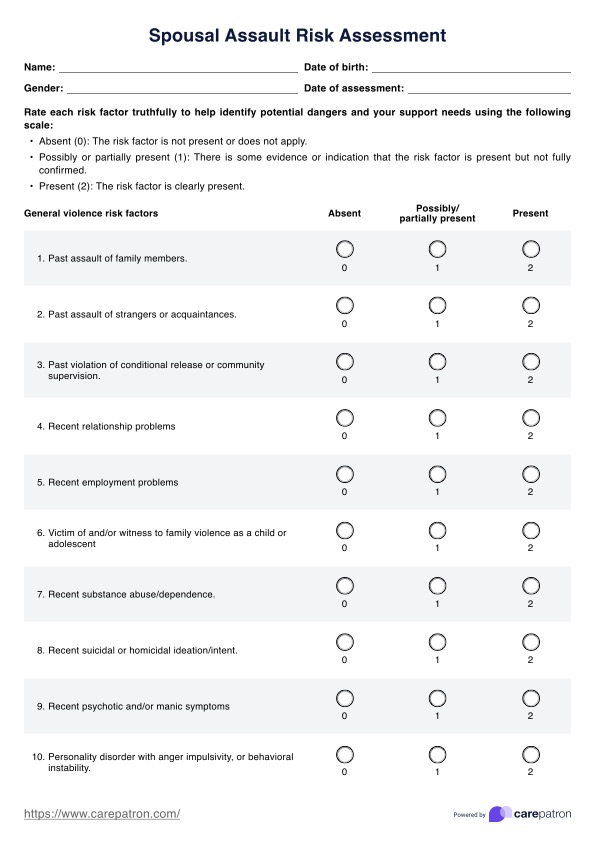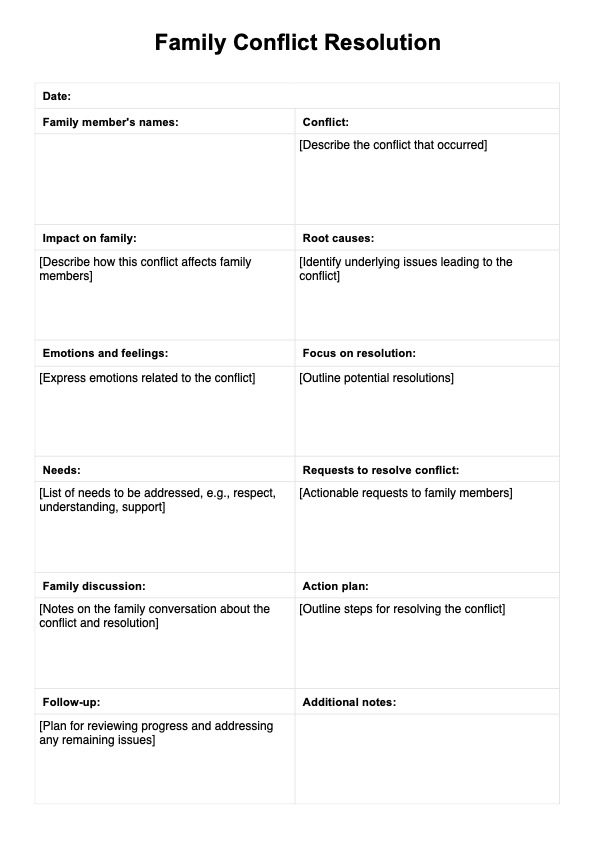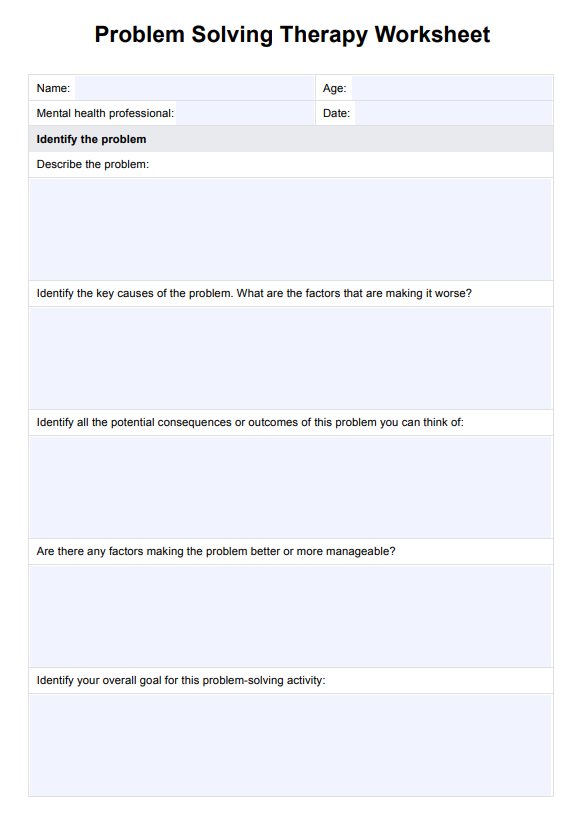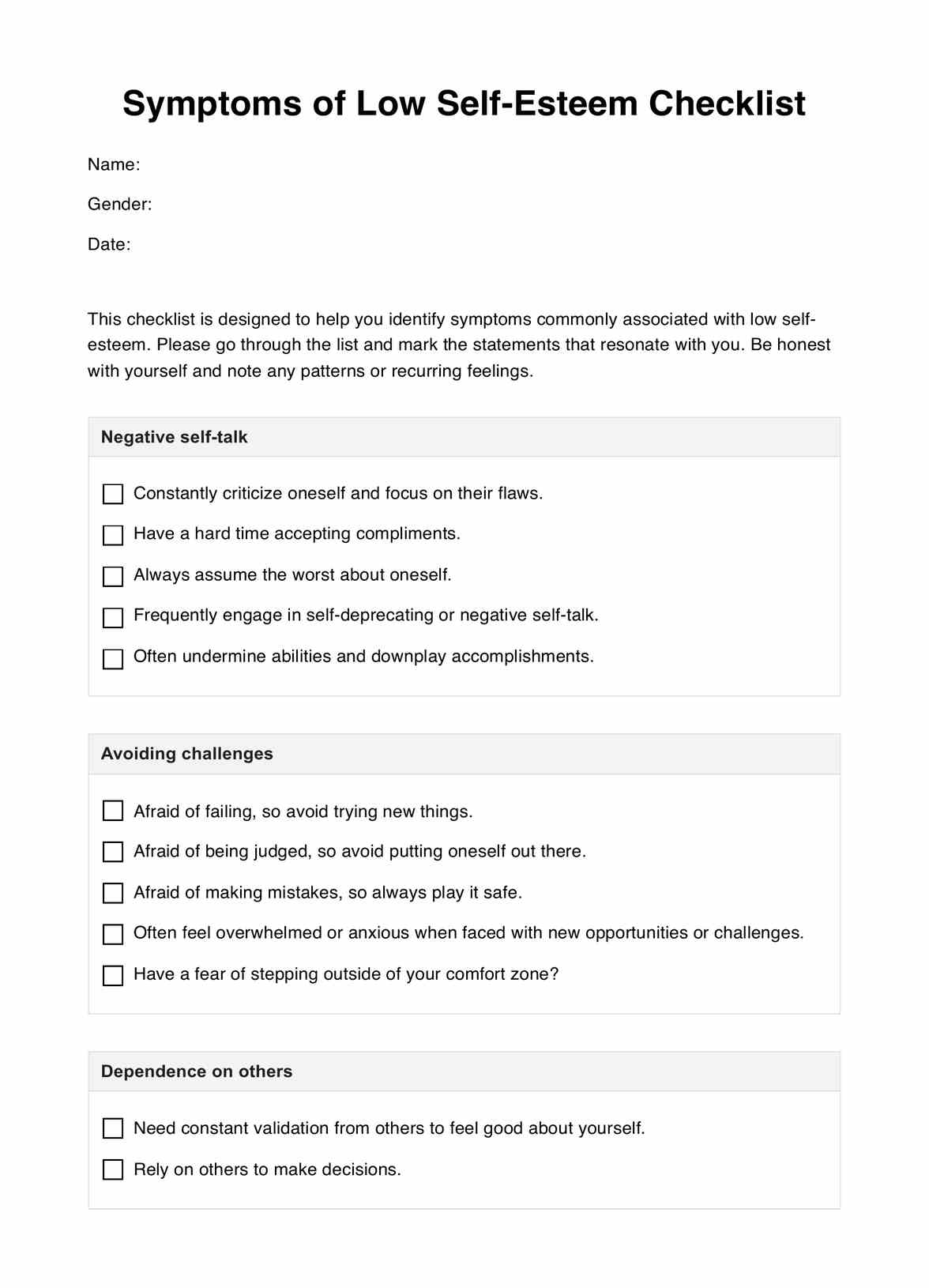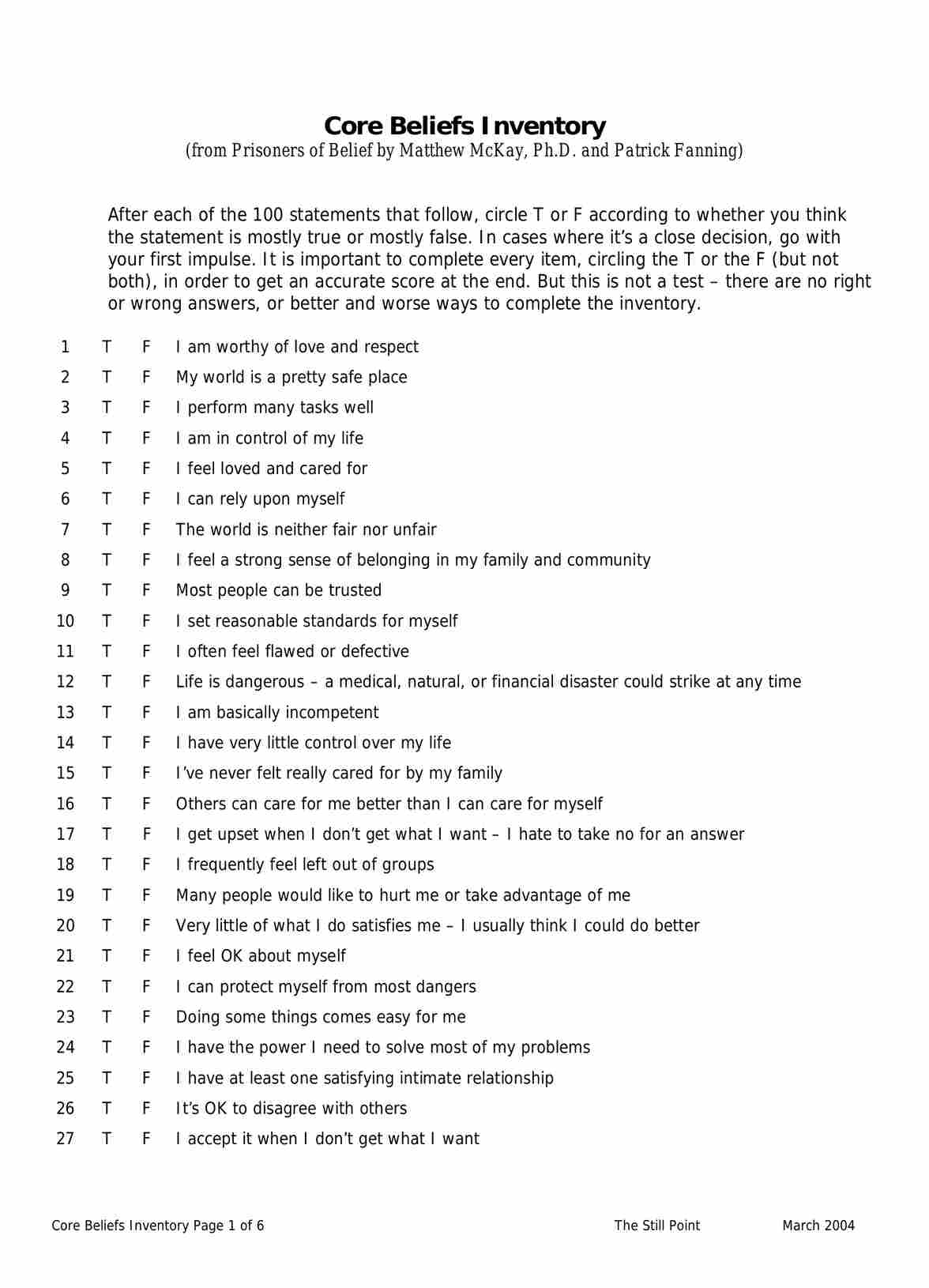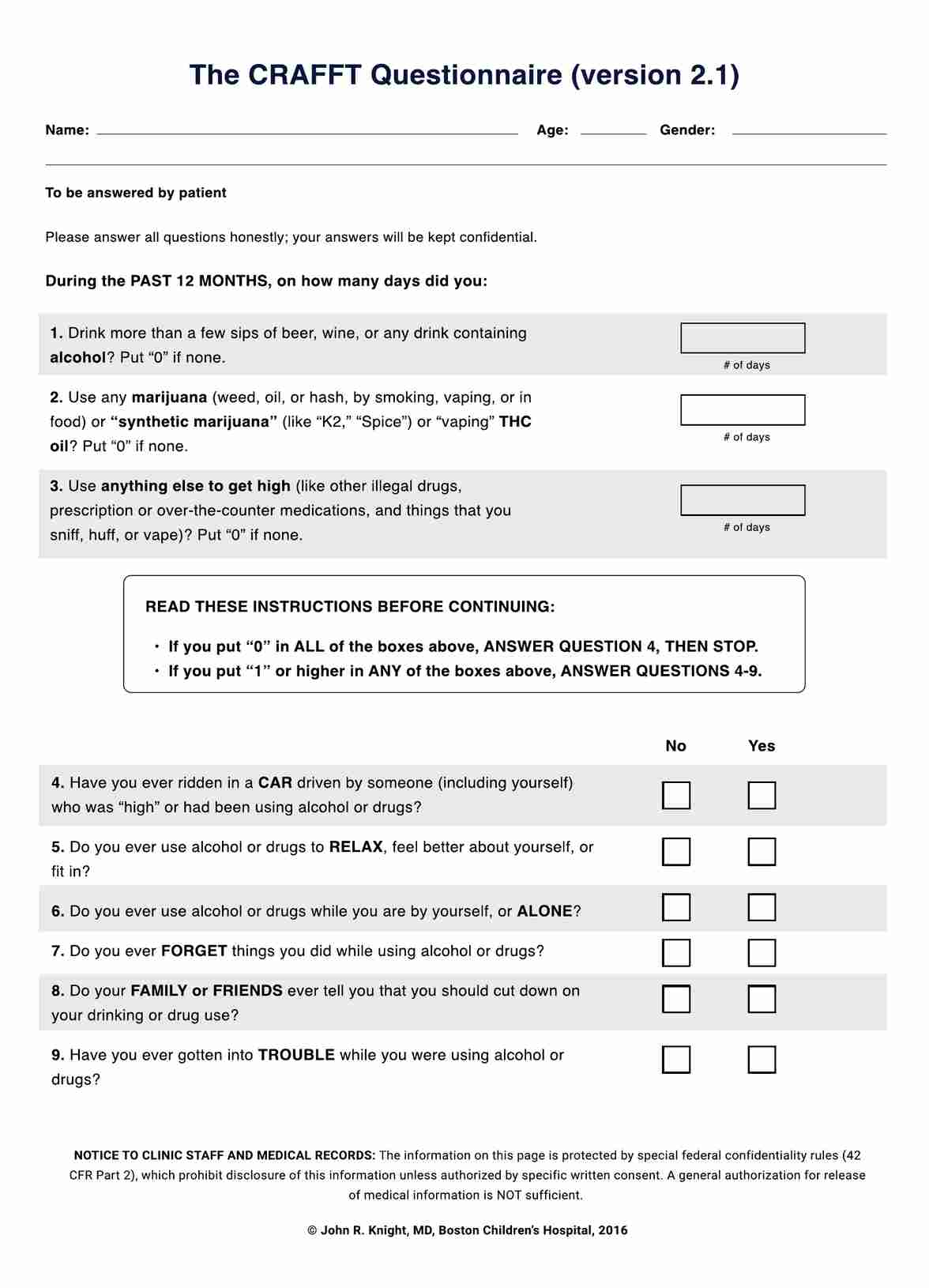Adult Attachment Scale
Discover the Adult Attachment Scales on Carepatron — a reliable tool for understanding attachment styles, improving relationship dynamics and mental health.


What is an Adult Attachment Scale?
The Adult Attachment Scale (AAS) is a psychological instrument intricately designed to explore the underpinnings of adult attachment styles and how these styles profoundly influence interpersonal dynamics.
Originating from the well-regarded attachment theory, the AAS examines three primary attachment styles, each revealing distinct patterns of emotional responses, expectations, and relationship behaviors. The triad includes secure, anxious, and avoidant attachment styles.
- Secure attachment reflects a high level of comfort in relationships and a wholesome view of oneself and others. This style is typically synonymous with healthy, balanced relationships.
- An avoidant attachment style manifests as pervasive discomfort in intimate relationships and an exaggerated need for independence.
- Anxious attachment is often marked by a persistent fear of rejection and abandonment, casting a shadow of anxiety over relationships.
The Adult Attachment Scale scrutinizes these styles by employing a series of thoughtfully crafted questions. These queries delve into the participant's emotions, perceptions, and beliefs concerning their relationships, offering insightful data about their attachment style.
The following explainer video elucidates the nuances of the Adult Attachment Scale and illustrates its broad application in understanding and improving personal and professional relationships.
Adult Attachment Scale Template
Adult Attachment Scale Example
How does it work?
The Adult Attachment Scale (AAS) offers a strategic, systematic approach to discerning attachment style. Its simplicity and ease of use, combined with the profound insights it provides, make it a favored tool in psychological assessment. Here's a step-by-step guide on how it functions.
Completion of the Scale
The first phase involves the participant engaging with the scale, typically composed of 18 thought-provoking items. Each item pertains to the individual's emotions or beliefs about their relationships, probing into their approach toward intimacy, trust, and independence. This process of introspection provides the foundation for the upcoming assessment.
Decoding Scores: Understanding the Metrics
Each item on the scale is evaluated on a five-point scale. This ranges from 1, denoting 'not at all characteristic', to 5, indicating 'very characteristic'. This scoring system permits nuanced measurement of the degree to which each attachment style trait resonates with the participant's self-perception, creating a multi-dimensional view of their attachment style.
Reading Between the Lines: Interpretation
The scores are then interpreted to pinpoint the participant's dominant attachment style: secure, anxious, or avoidant. This step transforms the raw scores into meaningful insights, helping individuals understand their relational dynamics better and paving the way for enhanced interpersonal relationships.
Printable Adult Attachment Scales are readily available for those who gravitate towards traditional paper-and-pen methods. This ensures that this remarkable tool remains accessible to all, regardless of their digital proficiency. So, whether you are a digital native or a pen-and-paper enthusiast, the AAS is just a click or a print away.
When would you use this Template?
Adult Attachment Scales provide key insights into our relational dynamics in clinical settings and personal self-exploration. Here's an expanded look at some of the most common scenarios in which the scales are employed:
- Mental Health Clinicians: Psychologists, therapists, and counselors frequently incorporate the Adult Attachment Scales into client assessments. Understanding a client's attachment style can shed light on recurring issues in their interpersonal relationships and help guide effective interventions. These scales are a significant element of a comprehensive psychological evaluation.
- Struggling Individuals: Adult Attachment Scales can also help individuals pinpoint potential root causes. Individuals can better understand their relational patterns and work towards healthier dynamics by identifying their attachment styles.
- Suspected Attachment Issues: If a professional or even a layperson suspects that an individual's relationship problems stem from attachment issues, the Adult Attachment Scales can be a valuable resource. These scales can clarify whether attachment issues may be at play by assessing one's comfort level with intimacy, dependence, and independence.
- Research Purposes: The Adult Attachment Scales are also commonly employed in academic research, beyond clinical and personal use. They can be used to study the prevalence and impact of different attachment styles within adult populations. This usage contributes to our broader understanding of adult attachment theory and informs future developments in the field.
The Adult Attachment Scales are available in a user-friendly PDF format for convenient use and distribution. This ensures the tool's accessibility and utility in diverse settings, from clinical offices to academic institutions to the privacy of one's home.
Benefits of the Adult Attachment Scale
The Adult Attachment Scale yields many benefits, contributing to both personal growth and professional development. Here's a detailed look at how the Free Adult Attachment Scale facilitates enhanced understanding and effective interventions:
Unraveling Attachment Styles: Personal Insights
One of the Adult Attachment Scale's prime benefits lies in its ability to help individuals decipher their unique attachment styles. This understanding is critical to unlocking the door of self-awareness, paving the way for meaningful changes in personal relationships.
Gaining Relationship Insight: Spotting Patterns
By providing a mirror to individuals' relational dynamics, the Adult Attachment Scale sheds light on repeating patterns, both healthy and unhealthy. It facilitates a deeper comprehension of the intricate interplay of emotions and behaviors in relationships.
Streamlining Therapeutic Planning: Tailored Interventions
For therapists, the Adult Attachment Scale is a valuable ally in devising customized therapeutic plans. By revealing clients' dominant attachment styles, it enables professionals to tailor interventions specifically catered to their needs, enhancing the effectiveness of the therapeutic journey.
Powering Research Utility: Expanding Knowledge
In academic research, the Adult Attachment Scale is a reliable tool for investigating attachment styles in various populations. It assists in generating valuable data that propel the field of adult attachment theory forward.
Ensuring Easy Access: Free and User-friendly
The Scale is free, ensuring anyone seeking insights into their attachment style can easily obtain this resource. With a user-friendly design, it bridges the gap between complex psychological theories and practical applications.
Carepatron’s Free Adult Attachment Scale is a dynamic tool that enlightens personal understanding and augments professional practice and research in psychology.

Research & Evidence
With support from extensive research and solid evidence, the Adult Attachment Scale (AAS) dominates the field of psychological assessment. Over the years, it has been meticulously employed in many studies, solidifying its status as a reliable and valid instrument to measure adult attachment styles.
Developed as a self-report questionnaire, the AAS finds its roots in attachment theory, which gained prominence through the seminal work of psychologist John Bowlby. It was designed to translate this theory into quantifiable metrics, offering an empirical method to study adult attachment styles. Since its inception, the scale has undergone rigorous evaluation and refinements, emerging as a well-validated measure that enjoys widespread usage in clinical and research settings.
A considerable body of research bolsters the utility of the AAS. It confirms the association between distinct attachment styles and various facets of relationships, mental health, and overall well-being. For instance, studies have demonstrated links between secure attachment and higher relationship satisfaction, while anxious and avoidant attachment styles correlate with relationship difficulties and mental health concerns.
Furthermore, the AAS has played a significant role in expanding the horizons of attachment theory beyond childhood and into the domain of adult relationships. This progression was instrumental in illuminating the enduring impact of early attachment experiences on adult relationships and mental health. This revelation has immensely enriched our understanding of human development and mental health trajectories.
The consistency of findings across studies, the scale's ability to predict relationship outcomes, and its robust theoretical foundation all attest to its reliability and validity. Therefore, the Adult Attachment Scale stands not just as a tool of assessment but also as a testament to the transformative power of psychological research. Its ongoing use in research and practice continues to shed light on the complex dynamics of adult attachment, promoting healthier relationships and mental well-being across the globe.
Commonly asked questions
The Adult Attachment Scale is used by mental health professionals, including psychologists, therapists, and counselors, as well as researchers studying attachment styles in adults.
The Adult Attachment Scale is used when there's a need to understand an individual's attachment style, particularly in interpersonal relationships and attachment-related challenges.
The Adult Attachment Scale is used by having individuals rate a series of statements related to their feelings and beliefs about relationships. The responses are then scored and interpreted to determine the individual's dominant attachment style.

.jpg)
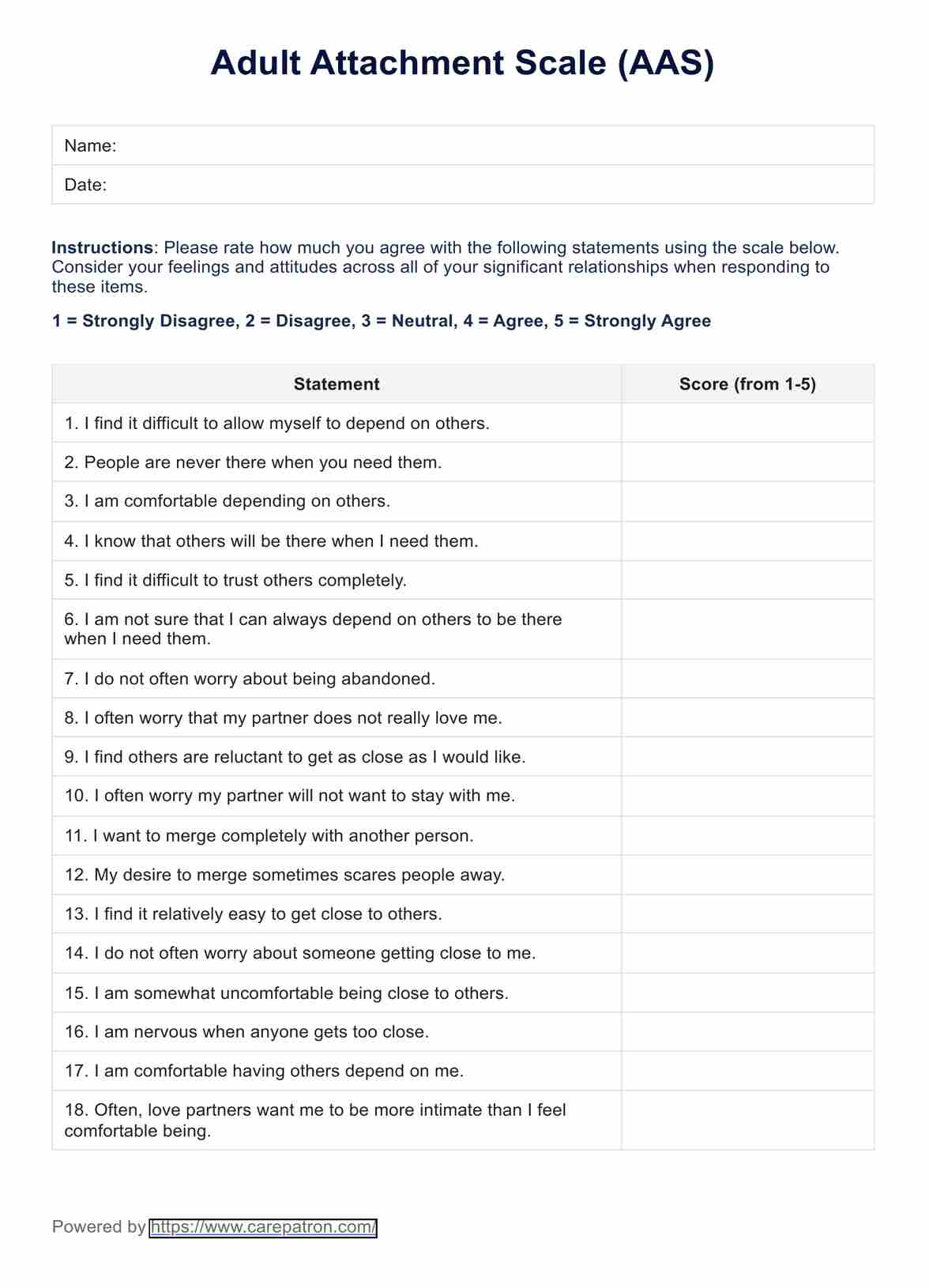

















-template.jpg)


